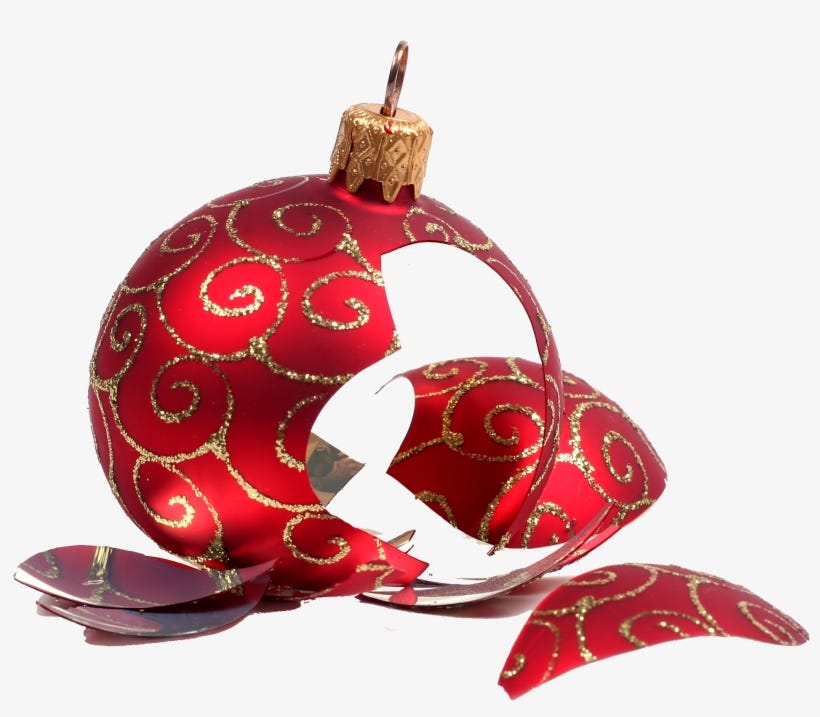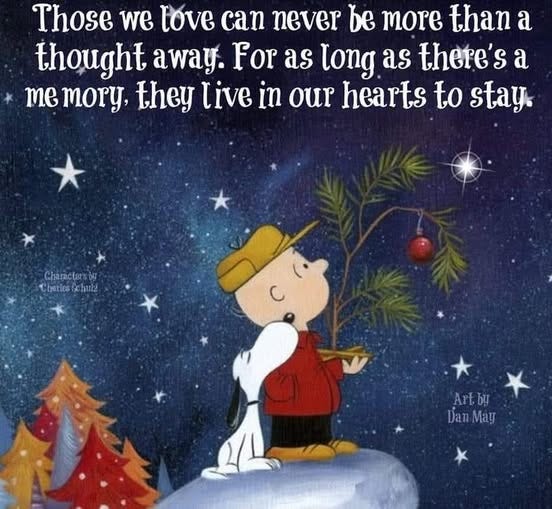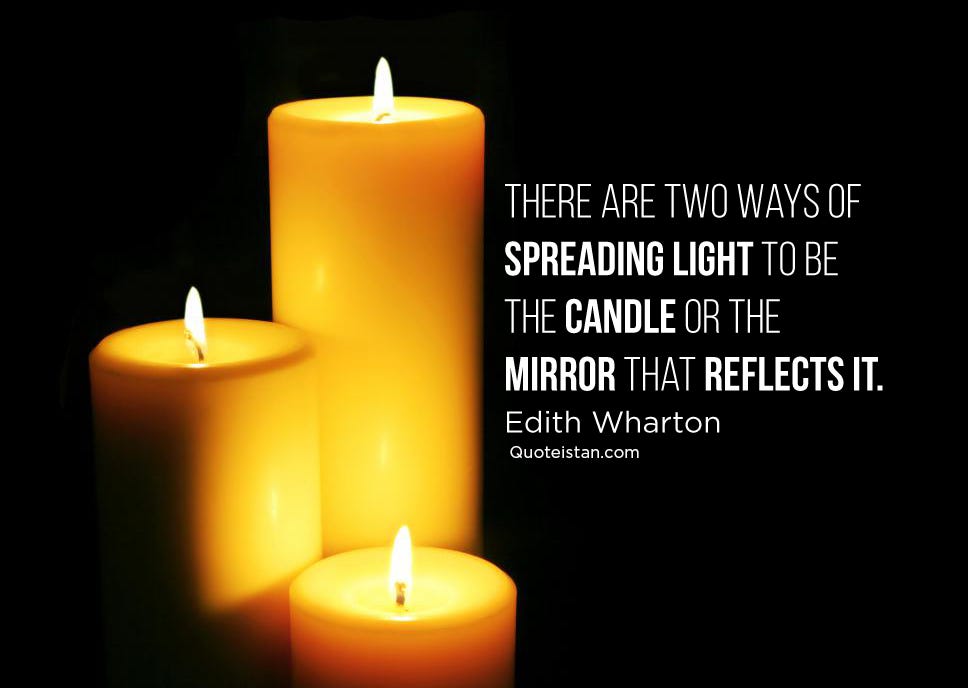He heals the brokenhearted and binds up their wounds.
Psalm 147: 3
My grandmother’s delicate glass Christmas ball slipped from my hands and fell onto the tile floor of the enclosed porch. I watched the pieces shatter and scatter into sharp fragments that could never be whole again.
It was the way I felt not too long ago, shattered by Ron’s death and valiantly trying to piece my life back together again. It was an impossible task; after 44 years of marriage, Ron’s life had merged with mine. His loss left many pieces missing.
I was broken. On the outside, I carried on with my life: teaching, writing, serving at church, and caring for my children. Few people would have known there was a large hole where Ron had been. Where he should have been. I would see older couples in the market or at church, walking hand in hand and I would think, That should have been us. My logical mind told me that with Ron’s mental and physical disabilities, the scene I pictured—walking hand and hand into the sunset—would not have happened.
My heart said differently.
Fast forward five years and the broken ornament is not a tragedy, but a reminder of how far God has brought me since those early days of numb grief.
Though he now lives on a different—and better—plane, Ron is still a part of my life. The years with his love have blessed me in countless ways. Even with the illnesses and hospitalizations that often made my daily life an exhausting trek through the unknown, our marriage had never been broken. God kept us whole.
But so much of the world is broken. As I carefully cleaned up the delicate pieces of Grandmom’s ornament, I thought about it: Jesus came to save a broken world, a world shrouded in darkness.
"The people walking in darkness have seen a great light; on those living in the land of deep darkness a light has dawned." Isaiah 9:2 (NIV)
The Word of God had not been heard since the prophet Malachi spoke 400 years ago. Israel was a nation split into four groups, all under the oppressive thumb of Rome. Many of the leaders of the Hebrew people were corrupt. The order by Augustus to take a census made a mockery of the tradition of the Hebrew people, who saw the land of Israel as their heritage (Luke 2). Obeying the census—and there was no choice in the matter—was not only an imposition but a hardship.
Darkness, then. Greater than my first or any following years of widowhood.
During the last five years, God has continued to be with me. He has shown me a new life without Ron. He has shown me that even a woman broken by grief can be a light to others.
You, Lord, keep my lamp burning; my God turns my darkness into light. Psalm 18:28 (NIV)
Here I am, still in the land of the living, waiting patiently—or not so patiently—on the Lord (Psalm 27:13-14).
This past year, I began to write about the hard years of spousal caregiving, focusing on Psalm 91 and praying I might be able to bring comfort to other women sitting in a hospital waiting room, uncertain of what the future holds, or their ability to care for an ill man.
He that dwelleth in the secret place of the most High shall abide under the shadow of the Almighty. I will say of the LORD, He is my refuge and my fortress: my God; in him will I trust. Psalm 91:1-2
Ron is still gone; my grandmother’s ornament is still broken. But I am not. I am whole; I am healed. And in this new age of darkness, I am ready to spread some light.
Which are you? The candle, or the mirror that reflects it?
Hi, Readers, I’d like to ask a quick favor. If you’ve enjoyed this post, maybe even learned something from it, would you consider sharing it on your own social media or email or even restacking it here on Substack? I’d appreciate it as I try to spread the realities of adult autism and widowhood!








